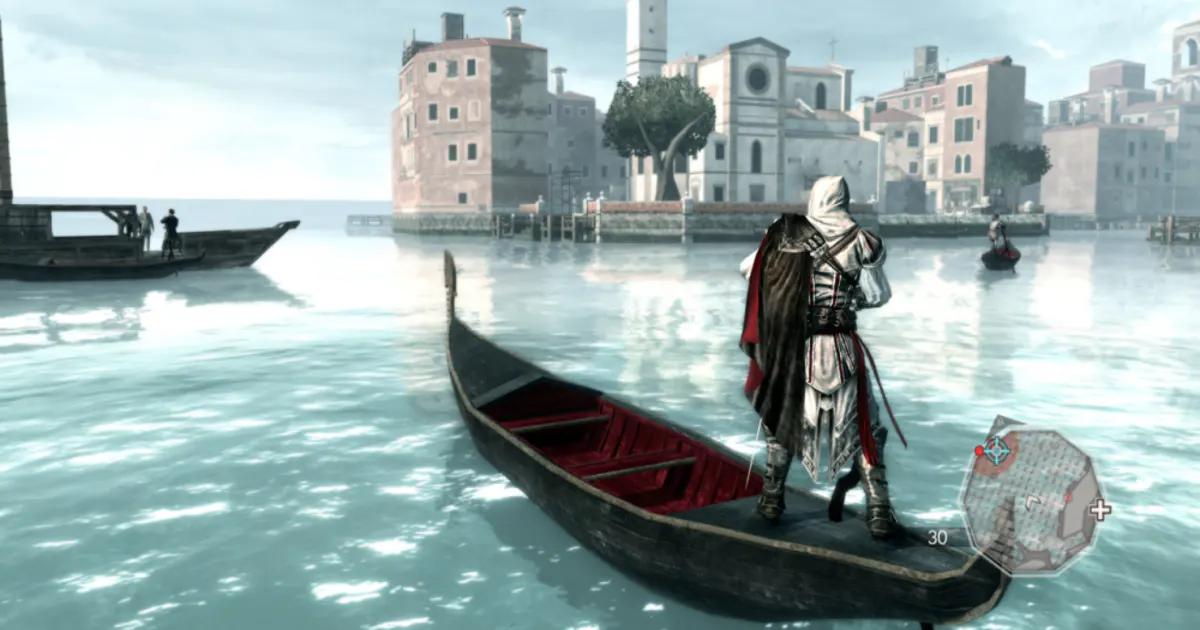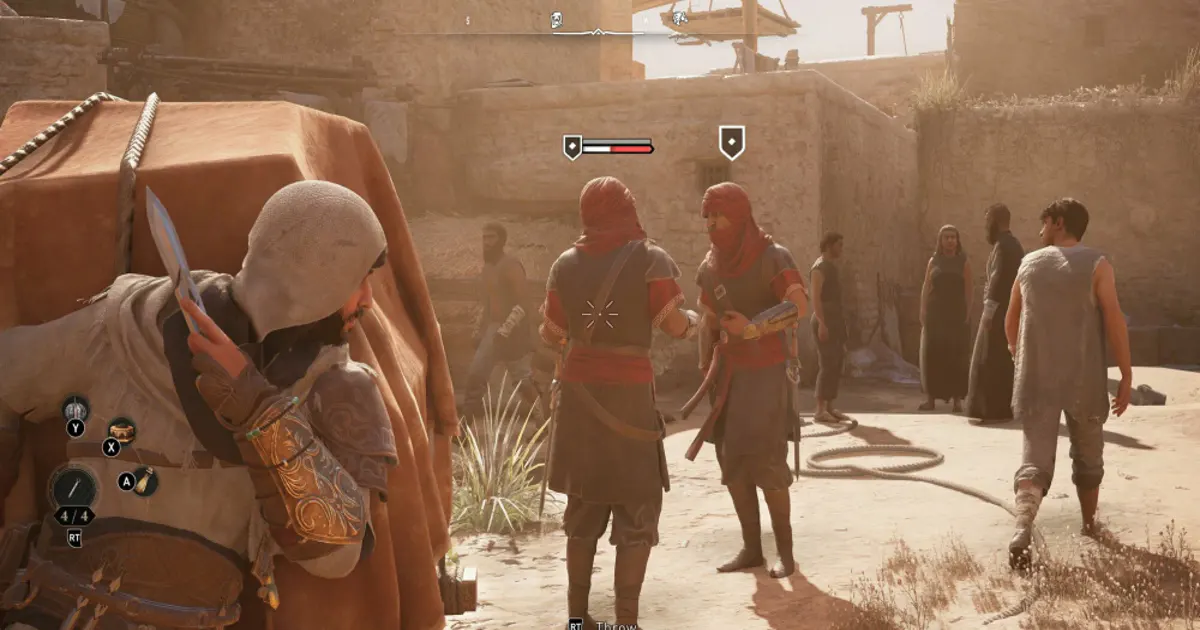The Evolution of Assassin's Creed: From Stealth Roots to RPG Epics
Assassin's Creed has journeyed from its stealth-action origins to sprawling RPG adventures, transforming gameplay, narrative, and settings with each new release. Explore how the franchise embraced innovation, diversified mechanics, and kept its core themes alive, captivating millions of players worldwide.
The evolution of the Assassin's Creed series is a testament to its enduring popularity and innovation. Since the release of the first game in 2007, Assassin's Creed has transformed from an arcade adventure about medieval assassins into a sprawling franchise featuring RPG mechanics and a mysterious narrative. The original game introduced the franchise's core gameplay: free-running parkour across rooftops, blending into crowds for stealth, and dramatic sword-fighting counterattacks. At its heart was the central conflict-the Templar Order's quest for control over humanity versus the Assassin Brotherhood's fight for freedom. Set during the Crusades in Jerusalem, the first installment taught players the basics of stealth and acrobatics. As the series expanded, Ubisoft strengthened these foundations: the "three pillars"-parkour, stealth, and targeted assassinations-remained, even as new features emerged. With Mirage, developers claim to have returned the series to its roots. Beyond games, Assassin's Creed inspired comics, novels, and a film, but the core themes have endured. By 2016, over 100 million copies had been sold, making it one of Ubisoft's flagship franchises.
From Altair to Ezio - Assassin's Creed I-Revelations

The debut title, featuring Altair ibn-La'Ahad, introduced players to a cast of historical figures and the legends of the "Precursors" (Isu)-an ancient civilization responsible for crafting the Pieces of Eden. This narrative thread became a backdrop for all future games, explaining the roots of the eternal Assassin-Templar conflict. The modern-day storyline centered on Abstergo (the Templars' corporate front) using the Animus device to search the genetic memories of ancient Assassins, replacing present-day cutscenes with missions set in the 11th-13th centuries. Gameplay-wise, early titles showcased free-running across cities, counter-based combat against multiple foes, and basic stealth mechanics like blending with crowds and using eagle vision.
Subsequent entries-II, Brotherhood, and Revelations-moved the action to Renaissance Italy. Ezio Auditore, operating in 15th-century Florence, Venice, and Rome, quickly became a fan favorite. Many consider his adventures, especially AC II and Brotherhood, the series' high point. These games expanded the combat system (dual hidden blades, throwing weapons, attack chains), enhanced parkour, and introduced traps. Developers emphasized dynamic, vertical movement and faster animations-an inspiration for Mirage's return to the "original design." While maintaining gameplay similarities, the narrative grew from Ezio's personal drama to encounters with the last of the Precursors in Constantinople. The Animus continued to weave together past and present, deepening the franchise's signature mystical elements.
From America to France - Assassin's Creed III, IV, Unity
The next trilogy broadened the series' scope. Assassin's Creed III (2012) shifted the setting to the New World on the eve of the American Revolution (1753-1784). Taking three years to develop, it was the first to utilize the Anvil Next engine, rendering up to 2,000 NPCs at once-perfect for recreating sprawling battles. The environment expanded to forests, mountains, and colonial settlements, moving away from the "urban jungles" of Italy to focus on nature and grand-scale conflicts.
A year later, Assassin's Creed IV: Black Flag launched the series into the Golden Age of Piracy. For the first time, players could captain ships, sail the Caribbean, engage in naval warfare with Templar fleets, and explore islands. This innovation refreshed the gameplay and is still regarded as one of the franchise's finest entries.
Assassin's Creed Unity (2014) returned to Europe during the French Revolution in Paris. Unity was praised for its intricate city design and introduced four-player co-op for the first time. While the core gameplay remained familiar, the game faced criticism for technical issues at launch. It revisited the theme of terror, with Parisian fanatics roaming the streets while Assassin Arno Dorian fought and snuck through crowds.
This "America-France" era demonstrated the series' ability to transport players from North American forests to the towers of Paris, all while maintaining the essential stealth-action formula and expanding the world with new mechanics such as Black Flag's naval fleet.
Assassin's Creed Origins and the RPG Reinvention
A major turning point came with Assassin's Creed Origins (2017), the first in the "Ancient Trilogy" that effectively rebooted the franchise. Ubisoft introduced RPG elements: protagonist Bayek now had character levels, skill trees, loot-based equipment, and a quest system, dramatically altering gameplay. This marked the start of the RPG era-Origins, Odyssey, Valhalla. Set in ancient Egypt, from the Nile to the pyramids, Origins blended stealth with large-scale desert battles. The gameplay challenge increased: parkour gave way to more cautious approaches, while combat became chaotic due to weapon variety and enemy diversity. Still, the core tenets-parkour, stealth, assassinations-remained, though they took a backseat, something Mirage would later address.
Following Origins, Assassin's Creed Odyssey (2018) took players to ancient Greece, introducing gender choice, sea voyages, and even more RPG depth. Assassin's Creed Valhalla (2020) returned to the medieval era, as Viking raiders journeyed to ninth-century England. Valhalla stuck with an RPG focus: Eivor's "power level" replaced traditional leveling, and equipment granted skill bonuses (the "Bear" tree for combat, "Raven" tree for stealth). Ubisoft emphasized that Valhalla built on Origins and Odyssey's systems, maintaining series traditions-synchronizing viewpoints, hidden blades, and stealth missions-albeit wrapped in Viking aesthetics. RPG mechanics became the series' new backbone, seamlessly integrated with classic gameplay elements.
Valhalla and Mirage - Striking a Balance
Valhalla was the apex of the series' RPG approach, introducing raids on Anglo-Saxon settlements, player-built communities, large-scale group combat, naval exploration, and survival mechanics, making it one of the franchise's most expansive titles.

Assassin's Creed Mirage (2023) was Ubisoft's response to fans fatigued by sprawling RPGs. Mirage is positioned as "between eras," reviving the original philosophy with a compact world and a focus on stealth. According to producers, Mirage bridges classic style and modern experience-closer to the origins, but with contemporary polish. Set in ninth-century Baghdad, its map is smaller than Valhalla's, with denser, more dynamic streets. Parkour is intentionally more "Eastern": protagonist Basim climbs wooden scaffolding and abandoned buildings, echoing Altair and Ezio, while improved animation makes movement more intuitive. Narrow alleys and dense crowds restore the classic stealth feel-enemy watchers are easily lost in the throng, letting Basim execute sudden, deadly attacks. Mirage aims to balance RPG and stealth-action mechanics: assassinations and skills remain, but without the need to manage dozens of RPG stats as in Odyssey or Valhalla.
What's Next: Assassin's Creed Hexe and Beyond
After Mirage, Ubisoft is expanding the franchise even further. At Ubisoft Forward 2022, two new games were announced: Codename RED, set in feudal Japan, and Codename HEXE. Details on HEXE remain sparse, but insider reports describe a dark tale set in the 16th-century Holy Roman Empire during the witch hunts. The protagonist, Elsa, seeks revenge for her mother's execution for witchcraft. Ubisoft has confirmed that HEXE is being developed by the experienced Ubisoft Montreal team, led by Clint Hocking, and that gameplay will differ radically from previous entries. Insiders suggest HEXE will be darker and more linear, despite retaining an open world. Little is known about Beyond-it appears to be a codename for a future project. Ubisoft has hinted that the series will continue, with all new Assassin's Creed games united in the Animus Infinity hub, but details on Beyond remain secret.
How Assassin's Creed Has Changed: Mechanics, Setting, Narrative
Over the years, the series has undergone significant changes and diversification. Assassin's Creed gameplay was originally built around free-running parkour in city environments (debuting with Altair) and direct combat with crowds of enemies-elements that have consistently been refined. For example, Mirage made parkour more acrobatic and responsive, evoking the spirit of the early games. Combat evolved from simple sword strikes to complex combos and new animations, including ranged and blunt weapon attacks in later titles. The stealth system also transformed-from blending with crowds and striking at the perfect moment in early games, to Mirage's dense urban crowds reviving the classic "hidden assassin" feel.
The biggest experiment was the shift to RPG mechanics in Origins, Odyssey, and Valhalla: character levels, skill upgrades, branching ability trees, and loot turned Assassin's Creed into a full-fledged action-RPG. In Valhalla, the traditional level system was replaced by a "power level" based on skill upgrades. Even so, RPG elements complemented rather than replaced the franchise's roots: synchronizing viewpoints, hidden blades, and stealth assassinations remained integral to the Assassin's Creed spirit.
The story has also grown more complex, evolving from Altair's solitary fight against the Templars into a vast mythology. The Assassin-Templar war spans all of history-from the age of the Precursors (Isu) and their artifacts (the Apples of Eden), to the present day. The series presents their struggle as an eternal battle of freedom versus order, though it often paints both sides in shades of gray. Later games introduced Abstergo's corporate narrative: Templars, using this facade, use the Animus to rewrite genetic memory and manipulate historical facts. The narrative now operates on multiple levels-historical (the Animus), modern intrigue (corporate conspiracies and technology), and ancient legend (the Isu).
Assassin's Creed settings have shifted dramatically as the series evolved. The early games took players through the Middle East during the Crusades, then Renaissance Italy and Constantinople, followed by revolutionary America and France, Victorian London, and the ancient worlds of Africa and Greece. Ubisoft has noted that the franchise has "traveled the world: from ancient Greece and Egypt to London and Paris," and is now heading for new regions. While listing every setting would be a challenge, the most significant include: the Crusades and late medieval East (Altair), Renaissance Italy and the Ottoman Empire (Ezio/Revelations), colonial America, Caribbean naval warfare, the revolutions of the 18th-19th centuries (Unity/Syndicate), and finally, antiquity and the age of barbarians. The upcoming Codename RED will visit feudal Japan, Hexe will explore the folklore and superstition of witch-hunt Europe, and Beyond promises further experimentation.
Overall, Assassin's Creed is a dynamic, ever-evolving epic: gameplay mechanics and narrative themes shift from entry to entry, balancing contemporary trends (RPGs, open worlds) and time-tested "hidden killer" traditions. Each game keeps parkour and stealth at its core, but experiments with new forms. The series' evolution is remarkable: what began as an entertainment program about assassins has grown into a sweeping saga about freedom, the fate of civilizations, and the role of technology in society. With the story of the assassin brotherhood and their adversaries still unfolding, the future promises even more exciting twists for fans worldwide.